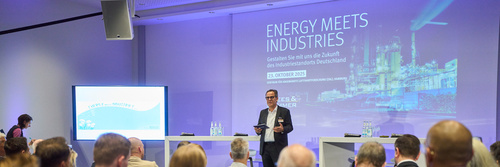
ENERGY MEETS INDUSTRIES 2025
SUCCESSFULLY TRANSFORMING THE ECONOMY AND SOCIETY AS ONE
“There are no participants here, only contributors” – this is how Drees & Sommer CEO Dierk Mutschler summarized the agenda of the third Energy meets Industries event at the outset.
The focus on 'doing' was intentional: Europe and the world's democracies are facing a mammoth double task: they must compete globally while managing the ecological transformation without abandoning democratic values.
On 22 and 23 October 2025, high-calibre experts and decision-makers from various industries and the public sector came together for the third time. And, for the first time, the next generation also had a voice! Once again, the focus was not only on current issues relating to the decarbonization of the economy and society. As in previous years, the main aim was to initiate tangible solutions.
“There are no participants here, only contributors!”
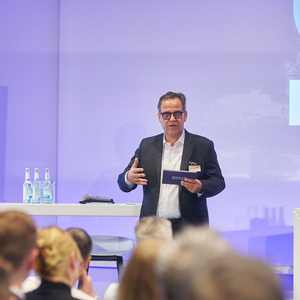
A PALPABLE DESIRE FOR CHANGE – AND TO DEFEND DEMOCRACY
Once again, panel discussions featuring interesting speakers, stimulating ideas, pertinent questions and concrete solutions demonstrated the will to move forward in challenging times in 2025. Many contributions this year showed that a functioning economy, an intact ecology and a vibrant democracy go hand in hand!
On the afternoon of 22 November, interested participants could choose to visit the Green Hydrogen Hub Hamburg (GHHH) project or take a tour of the Center for Applied Aviation Research (ZAL) to gain insight into its laboratories and research topics.
Following welcome remarks from Dierk Mutschler and Lorena Lüdorf, manager at Drees & Sommer, the evening lectures and discussions explored the technical aspects of the German and European energy transition in more detail.
In her opening remarks, Dr. Stefanie von Berg, State Councillor for the Environment, Climate, Energy and Agriculture, emphasized Germany's importance as an industrial location and Hamburg's pioneering role in climate protection. In view of climate change and other global challenges, such as fragile supply chains and political conflicts, rapid transformation is essential. In Hamburg, these issues are being tackled courageously and resolutely, as evidenced by the outcome of the recent referendum on even more ambitious climate protection targets. The important message is to take targeted action without falling into blind activism.
“We cannot ignore physics in economics and politics.”
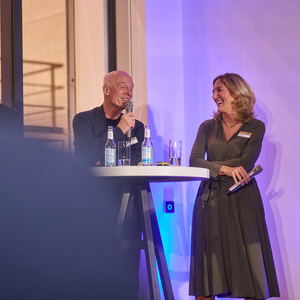
“What does the Hamburg industry need in terms of challenges, requirements and solutions?” This was the question posed by Jan-Oliver Siebrand, Managing Director Hamburg Chamber of Commerce's, in his keynote speech. He provided in-depth insights into the challenges and requirements of local and regional companies that are nevertheless interconnected on a global scale. A key finding was that: Climate protection and competitiveness are interdependent. A rapid and consistent transition to a climate-neutral economy enables earlier and higher payoffs. It also reduces the risk of bad investments and stranded assets.
EVENING EXCHANGE HAS YIELDED INITIAL RESULTS
After the joint dinner, concrete examples and possible solutions were also discussed. During the panel discussion, which was moderated by Drees & Sommer experts, Matthias Benz, CEO of the Zeppelin Group, Dr. Sebastian Bross, Chairman of the Executive Board Salzgitter Mannesmann Handel GmbH and Sabine Nallinger, Member of the Board of Directors of the Stiftung KlimaWirtschaft reported on progress in the transformation, as well as the obstacles and barriers that still exist.
Prof. Dr. Dr. h.c. mult. Hans Joachim Schellnhuber, Director General of the International Institute for Applied Systems Analysis, emphasized the need to develop a positive narrative — namely, the successful repair of our climate system through a combination of short- and long-term strategies and measures.
Emilia Zappe, representing the next generation, agreed with this view. She sent a clear message to the participants, expressing her desire for us to work together to achieve a sustainable economy well before the middle of the century. This includes not linking happiness and prosperity solely to the accumulation of material possessions!
“We are annoyed that our “standard” is changing. But what we have is not actually the “standard’.”
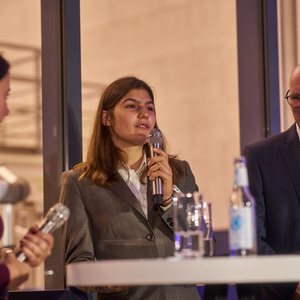
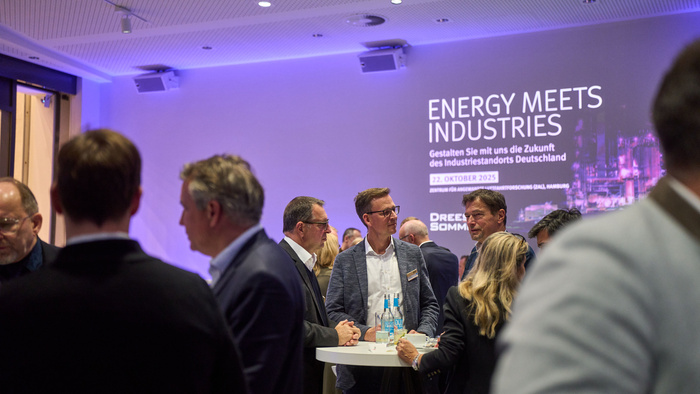
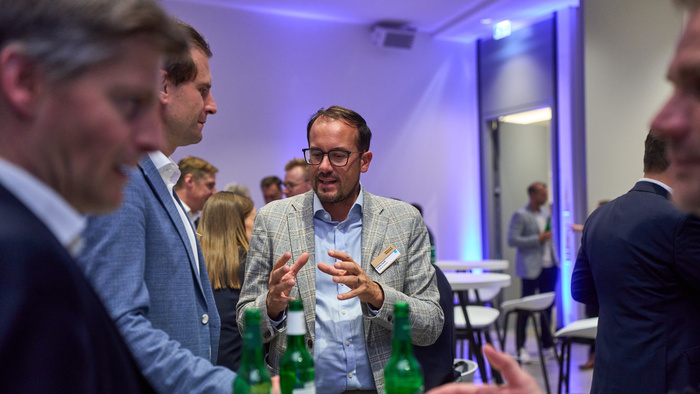
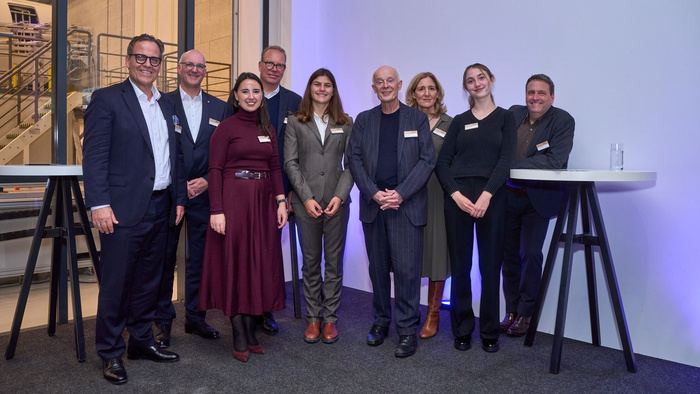
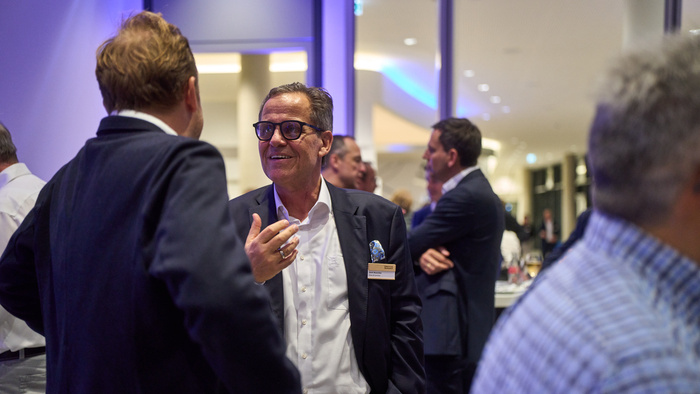
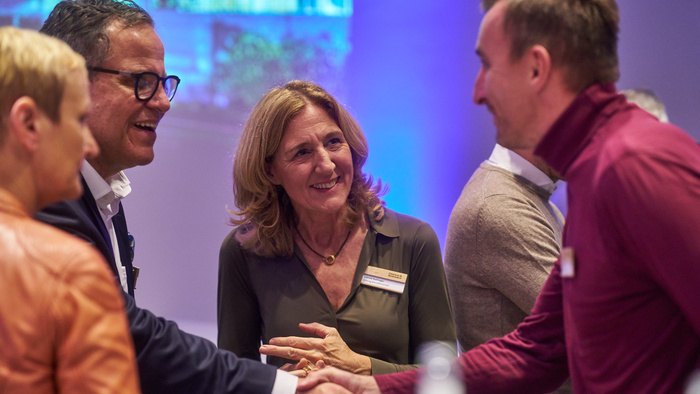
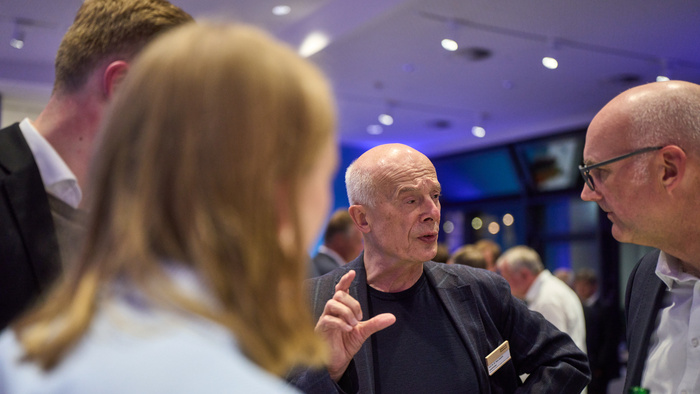
MAIN DAY OF THE EVENT PUTS SUCCESSFUL PROJECTS IN THE SPOTLIGHT
The second day of the event began with another impetus, once again provided by a representative of the next generation. Fifteen-year-old Theresa Schneider called for intergenerational cooperation, as well as an openness to questioning entrenched opinions.
“What you do today determines how I will live later.”
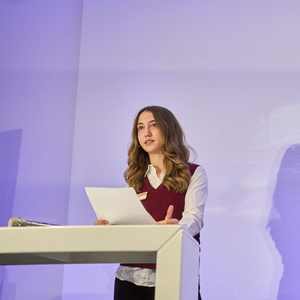
The subsequent panel discussion on 'Best Practice in Industry Transformation' showcased successful real-life project examples. Participants used current construction projects to demonstrate how energy transition can be achieved and the current challenges overcome. The participants were Alexandra Decker, Member of the Board of Directors at Cemex and chairwoman of the CMA; Martin Stiegler, Vice President Siemens Energy Global GmbH & Co. KG and Martin Zappe, Program Manager at SALCOS Salzgitter Flachstahl GmbH.
The role of storage technologies in the energy transition is undisputed. But what about battery electric storage? This question was explored by the panel “BESS – The missing key to transforming the energy system or just a short-lived trend?”. Dr. Christian Bauer, Partner at Watson Farley & Williams, Markus Korsten, CEO and Co-Founder of Megalion Europe GmbH and Marianne Weitzel, Investment Manager at Voltwiese Power Holdings Limited provided insightful statements on the current rapid development and expansion of BESS, as well as possible scenarios for the coming years.
As the host city for this year's event, Hamburg has long been known as Germany's 'gateway to the world'. Consequently, the third panel focused on important port infrastructure, specifically in relation to energy generation and transportation. Ports and long-distance energy networks are both involved in the complex interplay of the ramp-up of the hydrogen economy. Under the title “Ports, Infrastructure, Hydrogen and CO₂”, Ralph Bahke, Managing Director of ONTRAS Gastransport GmbH, Jannes L. Elfgen, Head of Port Energy Solutions and MD of Renewable Port Energy Hamburg, Yannis Fischer, Head of Energy Hub Office at Wirtschaftsförderungsgesellschaft Wilhelmshaven mbH and Randolf Weterings, Program Manager Electrification & Hydrogen, Port of Rotterdam discussed the challenges and opportunities of this combination.
LOCAL AUTHORITIES PLAY A KEY ROLE IN THE ENERGY TRANSITION
The panel discussion, “Municipal Transformation”, focused on the fact that municipalities play a key role in the energy transition. The panelists were Kirsten Fust, Technical Manager at Hamburger Energiewerke GmbH, Martin Graf, Executive Director at Energie Steiermark and Alexander Scholz, Head of District Heating at Mainova AG. The discussion covered the challenges faced in densely populated urban areas, the necessity of collaborative planning between industry and energy suppliers, and the importance of involving citizens from an early stage.
“The transformation in the communities feels less like a marathon and more like a sprint that is constantly interrupted by politics and regulations.”
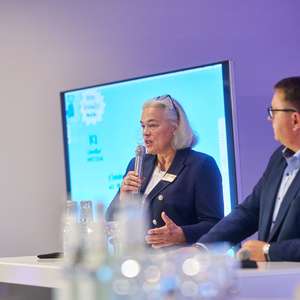
The concluding panel discussion focused on “Financing the Transformation”. Lars Bollensen, Partner at Luther Rechtsanwaltsgesellschaft mbH, Michael Henn, Global Head of Green Deal Infrastructure of Commerz Real AG, Dr. Alexander Hildner, Division Manager at DZ Bank AG and Gudrun Lindemann, Head of Nordics Energy and Infrastructure at Horváth examined financial and financial law issues.
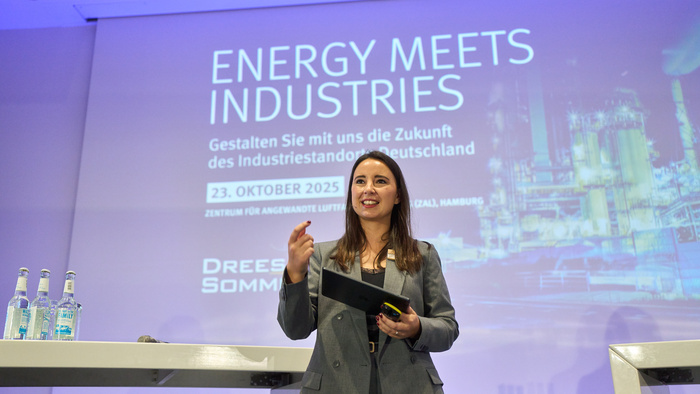
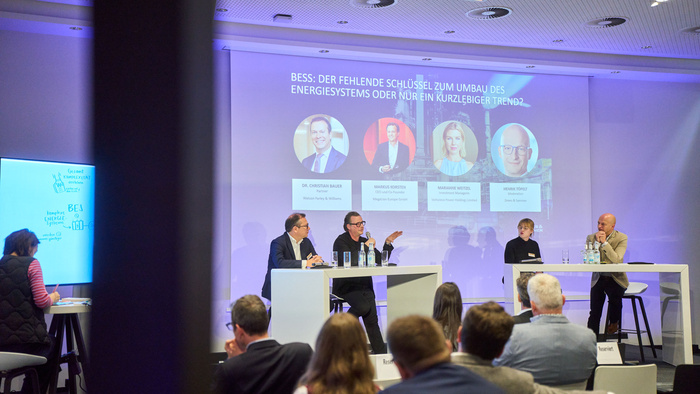
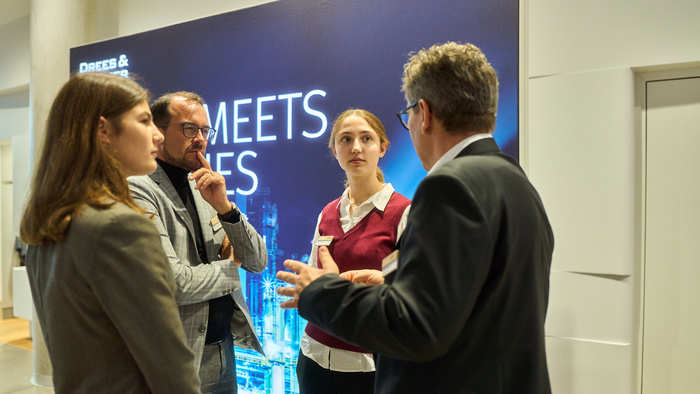
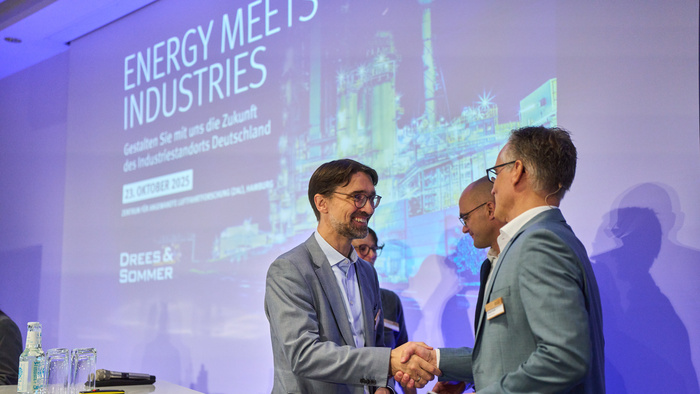
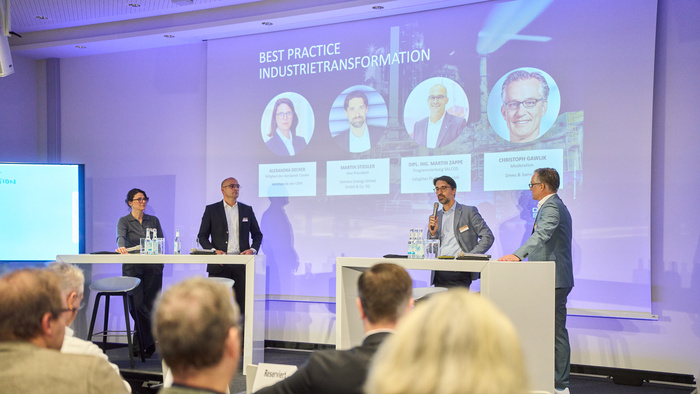
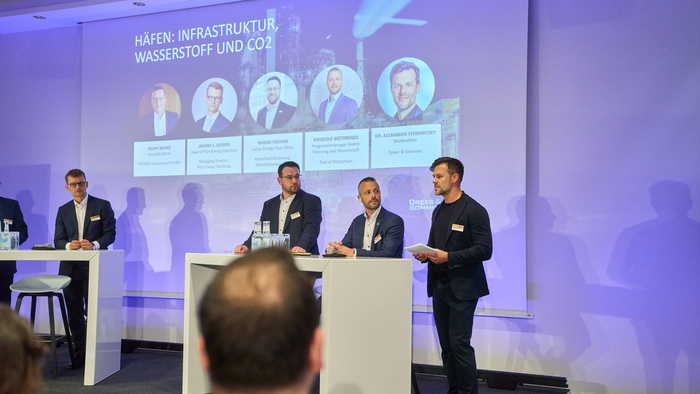
OUR KEY TAKEAWAYS FROM THE PRESENTATIONS AND INSIGHTS ARE AS FOLLOWS:
- Plan and act with the long term in mind: Although we must act decisively now, we must also consider the long-term consequences of our actions. This means that we are responsible not only for how future generations will live, but also for borrowing money from our children and grandchildren. That money must be invested wisely!
- Secure values that belong together: We must consider ecology, the economy and democracy together, and act accordingly. After all, we are operating within this triangle of tension. It is increasingly important at the moment to shift from a backward-looking, populist view to a forward-looking, optimistic one.
- Convince stakeholders and win them over to the transformation: Participants at the event repeatedly emphasised that not all stakeholders have yet recognised the need for fundamental industrial change. It is now important to engage everyone in dialogue on an equal footing, because that is the only way to successfully implement projects!
- Develop new business models alongside innovative technologies: During the transformation, new roles will emerge that stakeholders must adapt to and embrace. We must also develop new business models. This will ensure that green products and projects are economically viable too!
“Municipal transformation is a team effort. It requires courage, perseverance and cooperation, especially between energy suppliers, cities, businesses and citizens.”
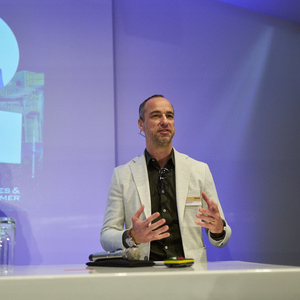
OVERVIEW OF THE PANELS AND PARTICIPANTS
Alexandra Decker | Member of the Board of Directors, Cemex | Chairwoman of the CMA
Martin Stiegler | Vice President Siemens Energy Global GmbH & Co. KG
Martin Zappe | Program manager SALCOS Salzgitter Flachstahl GmbH
Moderation: Christoph Gawlik | Drees & Sommer
Dr. Christian Bauer | Partner at Watson Farley & Williams
Markus Korsten | CEO and Co-Founder Megalion Europe GmbH
Marianne Weitzel | Investment Manager Voltwiese Power Holdings Limited
Moderation: Henrik Töpelt | Drees & Sommer
Ralph Bahke | Managing Director, ONTRAS Gastransport GmbH
Jannes L. Elfgen | Head of Port Energy Solutions | MD Renewable Port Energy Hamburg
Yannis Fischer | Head of Energy Hub Office Wirtschaftsförderung Wilhelmshaven mbH
Randolf Weterings | Program Manager Electrification & Hydrogen, Port of Rotterdam
Moderation: Dr. Alexander Stubinitzky | Drees & Sommer
Kirsten Fust | Technical Manager, Hamburger Energiewerke GmbH
Martin Graf | Executive Director, Energie Steiermark
Alexander Scholz | Head of District Heating, Mainova AG
Moderation: Frank Bornmann | Drees & Sommer
Lars Bollensen| Partner at Luther Rechtsanwaltsgesellschaft mbH
Michael Henn| Global Head of Green Deal Infrastructure, Commerz Real AG
Dr. Alexander Hildner| Division Manager, DZ Bank AG
Gudrun Lindemann | Head of Nordics Energy and Infrastructure at Horváth, Competence Center Energy, Environment und Telco
Moderation: Prof. Dr. Robert Göötz | Drees & Sommer
A BOAT TRIP THROUGH THE PORT OF HAMBURG BRINGS TRANSFORMATION TO LIFE
During the afternoon, participants in the Energy meets Industries program had the opportunity to witness the progress of the energy transition first-hand on a tour of the Port of Hamburg. This experience was complemented by a keynote speech on the topic of “Overshoot Management” by Prof. Dr. Dr. h.c. mult. Hans Joachim Schellnhuber. The core idea is to extract CO₂ from the atmosphere by planting more trees. This CO₂ is then stored in our built environment, with wood replacing mineral building materials as the preferred construction material. In this way, our cities would effectively become gigantic CO₂ storage facilities.
“We can transform the elephant in the room that is climate change — the construction industry — into the driving force behind climate protection. This is because the built environment offers a significant opportunity for sustainable climate repair. How? By switching from mineral-based to bio-based construction, primarily using wood, we can turn our cities into huge CO₂ reservoirs.”
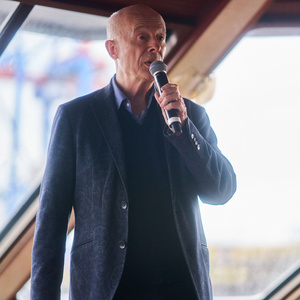
Jens Fabrowsky, COO of NEURA Robotics, shared some exciting insights into the latest innovations in cognitive robotics and open ecosystems. The Neuraverse platform functions as a kind of “app store for robotics” and connects various components and players in the industry on a global scale. In addition, Lena Voß from Lumera Energy and Jörg Spitzner from DACMA GmbH presented their start-up concepts. Lumera is dedicated to optimizing the economics of battery storage, while DACMA is developing innovative systems for the direct air capture (DAC) of CO₂.
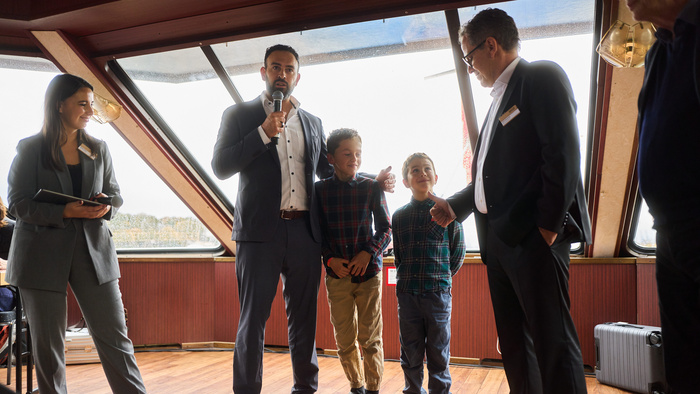
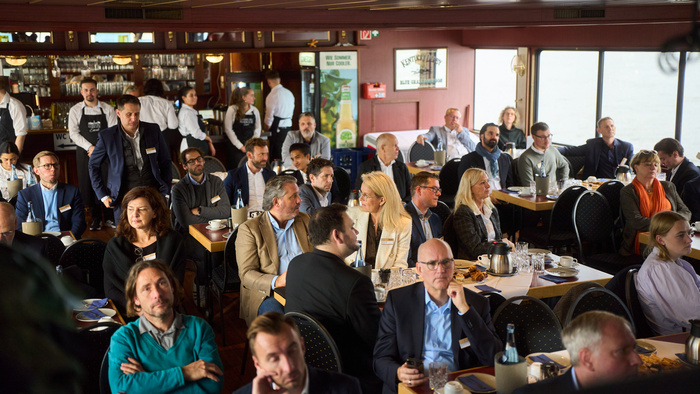
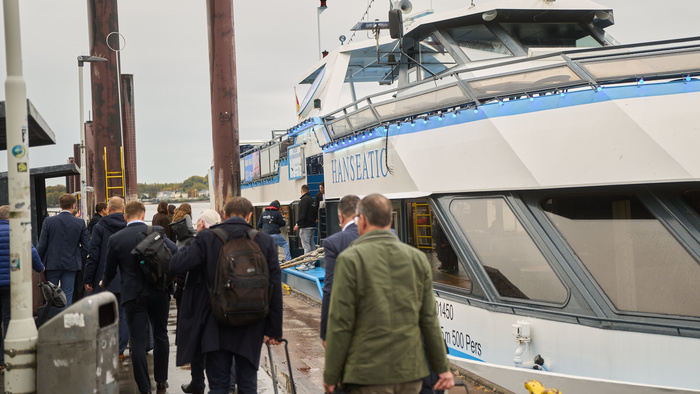
WHAT'S NEXT?
With its wide range of topics and personalities, Energy meets Industries 2025 has once again demonstrated that taking action is essential if we are to remain competitive and combat climate change effectively. For this reason, the next Energy meets Industries event has been scheduled for 4–5 November 2026 in Berlin! “We are looking forward to new ideas, new partnerships and continuing the exciting dialogue”, said Dierk Mutschler in his closing remarks.
Contact for further inquiries
Drees & Sommer
Lorena Lüdorf
lorena.luedorf(at)dreso.com
+49 711 1317 1552